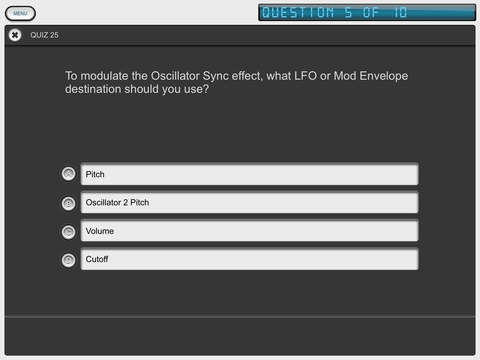

It still takes time, of course but Massive is not much different to any other subtractive synthesiser and the modulation system is of the best I've ever used.
#SYNTORIAL. PATCH#
Massive makes deeper patch programming very easy. Now it's more expected that we program sounds that have transformations built in as part of the character. The odd tweak of a control has always been commonplace but I think the big transformations started when dnb producers got hold of Massive in the mid 2000s. However, today's music demands a little more from the synthesist we need to present a working dynamic knowledge of our instruments through interesting transformations. Of course, when we're just making sounds for music applications we probably only need to arrive at a static solution that doesn't have such programmable flexibility. But the point is that you have deconstructed the sound to the point where you understand and have researched the individual elements to be able to present them once again as a controllable whole. Then you might offer a fader per element and maybe something to increase or decrease intensity. If, for example, you were writing an engine to generate fire sounds, you would assess what objects might be burning and also the types of sounds these objects make whilst they burn. Not having used the product I couldn't say if it is worth it but for what it promises, I would say so.Ĭonstructing sound usually starts with deconstructing sound into components that can be managed. If you are learning with the product, I think $130 is a very fair price. The real value IMHO is in the latter half of the equation, whereby it essentially holds your hand as you train your ear to recreate sounds you hear in the world (or for sounds in your head, create them for the first time!) and be rewarded with "RIGHT ANSWER"/"WRONG ANSWER" feedback which allows you to objectively assess your abilities. The first half of that equation excites me less I am already pretty familiar with the principles of synthesis and the vast majority of synthesizer functions (barring crazy esoteric stuff), hence my hesitation to buy Syntorial. Syntorial, on the other hand, seems more basic in the sense that you learn about synthesizers generally, their various parameters, and basically gives you a concrete way to practice programming them to shape a wide range of specific sounds.
#SYNTORIAL. HOW TO#
In your case then, I agree, your time would be best spent watching and reading Massive-specific tutorials on how to handle the controls within that particular soft synth. It's quite easy actually, you just have to come to grips with its unique method of routing modulations. I don't use Massive too much myself, but I own it and know how to use it.


 0 kommentar(er)
0 kommentar(er)
